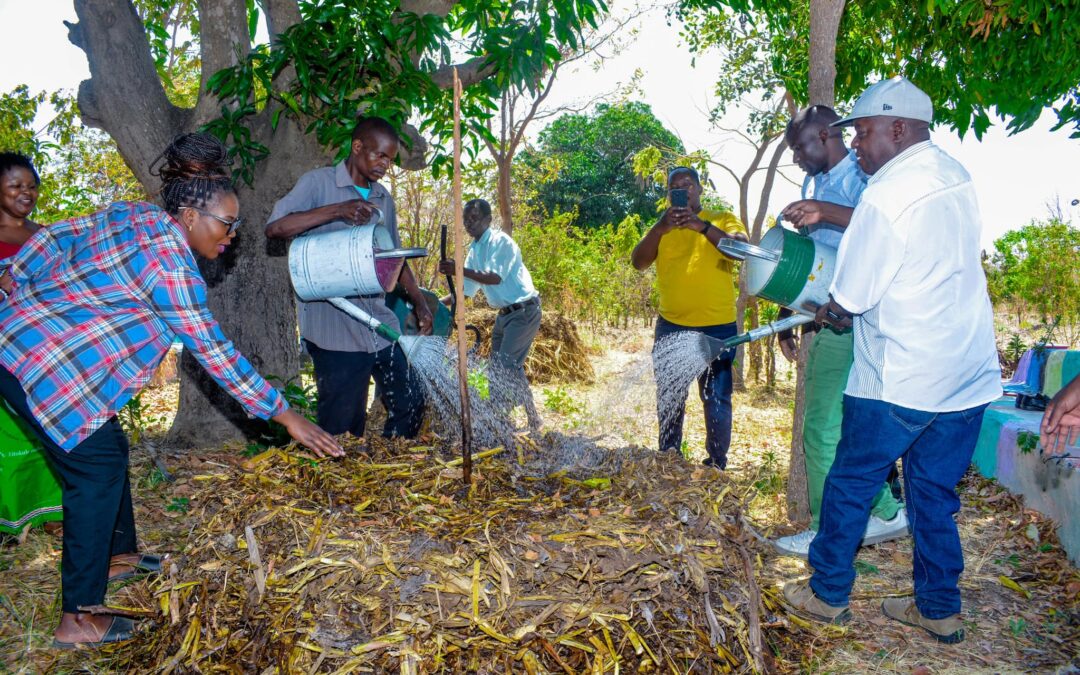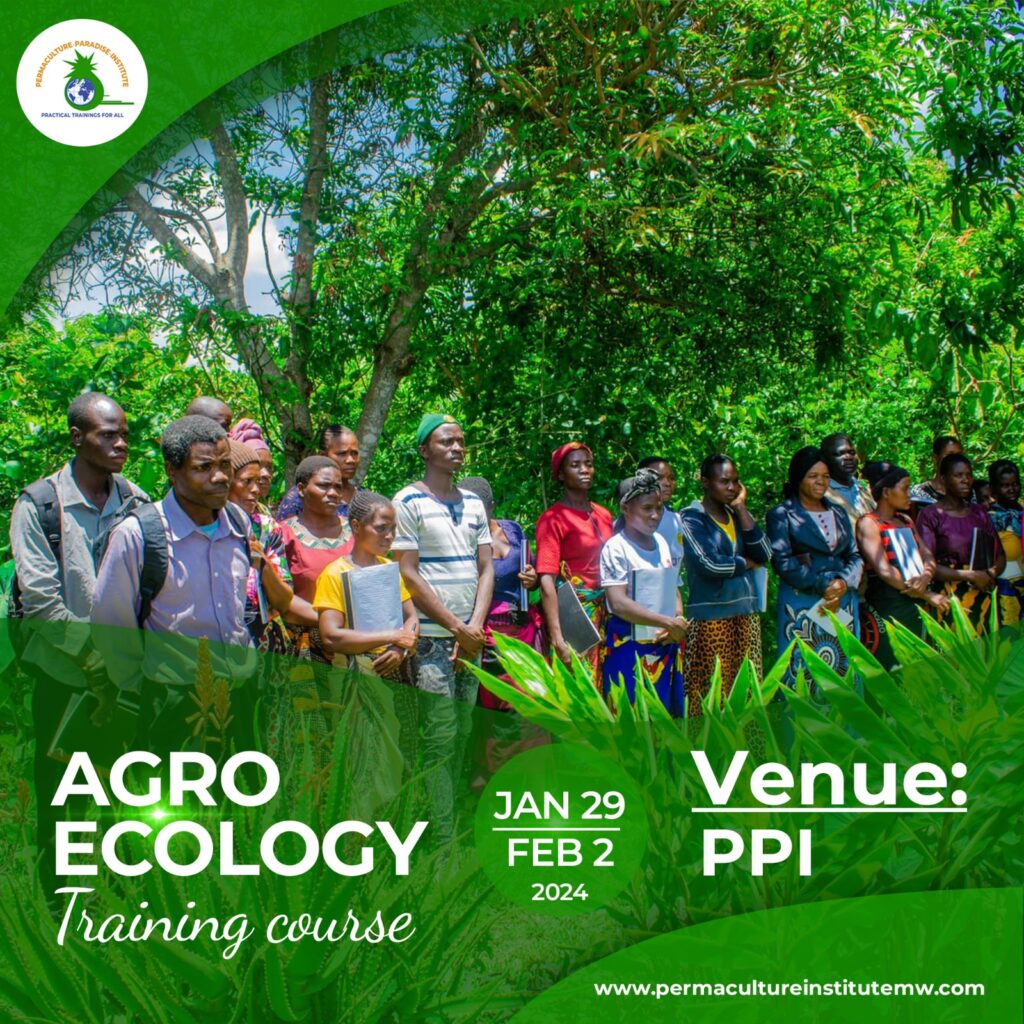On day two of the intensive Permaculture training course at the Permaculture Paradise Institute, participants delved into one of the most critical aspects of sustainable agriculture: soil ecology and management principles. As these 88 dedicated individuals continue their journey towards becoming sustainable farming leaders in Malawi, the insights gained today are shaping their understanding of how to cultivate healthy, resilient ecosystems.
The focus on sustainable soil ecology is vital, as soil health is the foundation of agricultural productivity. During this session, participants learned about the complex interactions within soil ecosystems—how microorganisms, nutrients, and organic matter work together to create a thriving environment for plants. The training highlighted the importance of nurturing soil health to enhance crop yields and combat challenges such as erosion, nutrient depletion, and climate change impacts.
Through interactive workshops and engaging discussions led by experienced facilitators, attendees explored key management principles designed to promote sustainable soil practices. These principles included techniques for improving soil structure, enhancing water retention, and fostering the growth of beneficial soil organisms. Participants learned how practices like cover cropping, crop rotation, and composting not only enrich soil fertility but also reduce the reliance on chemical fertilizers and pesticides, promoting a healthier environment.
The second day was not just about theory; hands-on activities involved practical demonstrations where participants practiced soil assessment techniques and soil amendment applications. They engaged in exercises that showcased how to create compost from organic waste and how to use mulch effectively to suppress weeds and retain moisture in the soil. These activities reinforced the course’s philosophy: sustainable agriculture is rooted in practical, everyday actions.

“Understanding and managing soil ecology is crucial for any farmer looking to embrace permaculture principles,” remarked one of the facilitators. “When we prioritize the health of our soil, we ensure the long-term viability of our crops, the health of our environment, and the resilience of our communities.”
By mastering these sustainable soil management techniques, participants are not just learning to grow food; they are being equipped to foster ecosystems that support biodiversity, improve food security, and enhance livelihoods. The knowledge shared in this training will empower them to create sustainable agricultural systems that contribute to both personal and community well-being.
As the participants continue to learn and apply what they’ve gained, they are becoming ambassadors of permaculture in their communities, driving change that affects not just their own farms but the broader landscape of agriculture in Malawi. With each passing day of training, they are laying the groundwork for a more sustainable future, one filled with healthy soils and vibrant ecosystems.

As we look forward to the remaining days of this transformative training course, the enthusiasm and commitment of these farmers serve as an inspiration. The journey towards sustainable farming is not just a personal endeavor; it is a movement towards environmental stewardship and resilience for future generations. Join us in celebrating these efforts to restore our relationship with the Earth through the powerful principles of permaculture!



